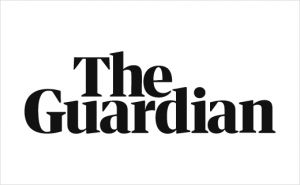
(This post originally appeared on The Guardian)
The first round of the government’s historic bailout of small business didn’t exactly get off to a good start. The $349bn loan program ended up in the hands of bankers and far too many big businesses. One “hero” emerged, however – Shake Shack, the burger chain that took $10m and then handed it back. Should we be applauding them? No.
The government’s paycheck protection program (PPP) was meant to keep small – emphasis on small – ticking over while the shutdown continued. I mean, it’s not like we wanted to close. PPP isn’t without its flaws but the idea was good.
It’s not Shake Shack’s fault that one of those flaws allowed it to scoop up $10m and other popular brands – step forward Potbelly Sandwich and Ruth’s Chris Steak House – also received millions in subsidized loans under guidelines that allowed even larger restaurant chains to treat each “physical location” as its own business and not be subject to the rule limiting borrowers from employing more than 500 people.
So did Shake Shack do the right thing by returning the money? No. The reason is that they should never have borrowed the money in the first place. Let’s be real here: Shake Shack, and its founder Danny Meyer, didn’t return the money because it was the right thing to do. They only returned it because he received other financing to replace it. If they didn’t receive that financing, they would’ve kept it.
“Shake Shack was fortunate last Friday to be able to access the additional capital we needed to ensure our long term stability through an equity transaction in the public markets,” wrote Meyer, the celebrity restaurateur (whose publicly held holding company owns a collection of acclaimed eateries in New York City that includes Union Square Café, Gramercy Tavern, The Modern and Maialino) in a Linkedin post. Meyer is one of the best-known restaurateurs in the country, a management genius, an icon of entrepreneurism and the author of Setting the Table, which, according to one Bloomberg columnist, is “a must-read for any manager of anything”.
Really? Sorry, but I’m not going to read that book. Neither should you.
Meyer wasn’t breaking any rules. But he clearly – and knowingly – took advantage of a scheme really intended for small business when he obviously isn’t one. Shake Shack is a publicly held company and Meyer is a multimillionaire. The company has more than 6,000 employees! Six thousand! These are not the beneficiaries that Senator Marco Rubio had in mind when he crafted the paycheck protection program. Is there no moral compass here?
The small business owners who are supposed to benefit from this rule – but haven’t because companies like Shake Shack sucked up all their cash – are the thousands that have been emailing and tweeting me over the past few weeks. They are five-person landscaping firms, family-owned local restaurants, distributors of auto parts, husband-and-wife roofing companies and countless others. They – like me – have suffered revenue declines and unfortunately aren’t publicly traded or have the resources of Meyer and his corporation.
Now there is a second round of funding out of Congress and this time the government says the loophole has been closed. We shall see. For many of those who were waiting for the first round, sadly, the money will come too late. Perhaps their owners, staff and customers will remember that next time they pass a Potbelly, Chris Ruth’s or Shake Shack, even though, I admit, their burgers are delicious.

